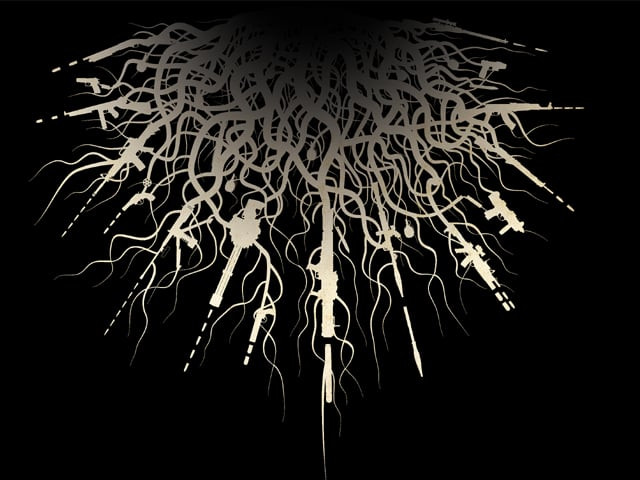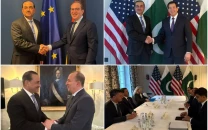Discussing radicalism: Lack of political will adding to fire
Apologist, defeatist views dominate discourse.

A “strategy of dislocation” that isolates the terrorists from the context that strengthens them is needed.
The intellectual bankruptcy of most of Pakistan’s politicians was evident at a seminar organised by the Sustainable Development Policy Institute (SDPI) on Monday to discuss the role of civil society and media with regard to radicalism in society.
Before Mahmood Bashir Virk, chairman of the National Assembly’s standing committee on law, justice and human rights, got to put in his final word as the chair of the panel discussion, the conversation had turned towards the misuse of blasphemy laws in Pakistan by way of religious extremism.
Virk appeared to portray the confusion and crisis in Pakistani society and the state regarding religious extremism for which he was later called out by fellow panellist Ejaz Haider. He said he was a realist when it came to the misuse of blasphemy laws, the Pakistani society was “sadistic” and the government was incapable of repealing the law, and he apparently took that to imply that people should arrange for their own security. “Slain human rights lawyer Rashid Rehman should have taken care of his security if he was so passionate about the cause of defending a blasphemy accused.”

Virk, a Pakistan Muslim League-Nawaz politician from Gujranwala, even made a hurtful remark about former Punjab Governor Salmaan Taseer, who was assassinated for his views on the blasphemy laws in 2011. “You cannot ridicule the blasphemy law and then go for tea to Kohsar Market.” When Virk was not busy making apologetic remarks, he said democracy was the only way out of the quagmire of extremism.
Pakistan Tehreek-e-Insaf Member National Assembly Ali Muhammad, in a rambling speech, claimed that blasphemy was punishable by death in every religion. Right after that, he said Islam was a religion of peace and Pakistani society needed a lesson in tolerance.
Shoaib Adil, the editor of Naya Zamana magazine in Lahore, said the state had allowed the banned religious outfits to operate with impunity, leaving people who were accused of blasphemy without due process.
Haider said the common strand among diverse religious extremists in Pakistan is that they all have “supra-state mindset” — they want to subvert and override the state. A “strategy of dislocation” that isolates the terrorists from the context that strengthens them is needed. But at the moment, the opportunity cost of stopping their killing spree is too low for terrorists to engage in meaningful negotiations with the government.

“At this stage, a short term solution (to curb extremism) would frankly need a lot of violence,” Haider said. “Brace yourself for more violence for there is no other way to tackle this monster.”
After Ziaul Haq gave the British-era blasphemy laws its teeth, the number of blasphemy cases has grown instead of acting as a deterrant, he stated. This reverse trend is indicative of misuse of blasphemy laws to settle scores.
PTI MNA Mussarat Ahmed Zeb advocated for reform in the education system as a means to achieve de-radicalisation and Jamaat-e-Islami’s Professor Ibrahim demanded access to, and delivery of, justice for citizens. “Justice is the foundation,” Ibrahim said. “Where there is justice, radicalism and extremism will cease to exist. It is the state’s basic responsibility to provide justice.”
SDPI Executive Director Abid Suleri said the space of mutual coexistence in society is shrinking and the media, which were civil society’s ally against injustice, had also become polarised.
The seminar was organised by the SDPI in collaboration with the Minority Rights Group International and the Ministry of Foreign Affairs of the Netherlands.
Published in The Express Tribune, May 27th, 2014.



















COMMENTS
Comments are moderated and generally will be posted if they are on-topic and not abusive.
For more information, please see our Comments FAQ